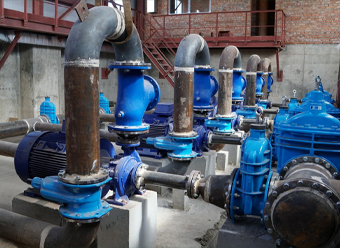Vietnamese
- Afrikaans
- Albanian
- Amharic
- Arabic
- Armenian
- Azerbaijani
- Basque
- Belarusian
- Bengali
- Bosnian
- Bulgarian
- Catalan
- Cebuano
- Corsican
- Croatian
- Czech
- Danish
- Dutch
- English
- Esperanto
- Estonian
- Finnish
- French
- Frisian
- Galician
- Georgian
- German
- Greek
- Gujarati
- Haitian Creole
- hausa
- hawaiian
- Hebrew
- Hindi
- Miao
- Hungarian
- Icelandic
- igbo
- Indonesian
- irish
- Italian
- Japanese
- Javanese
- Kannada
- kazakh
- Khmer
- Rwandese
- Korean
- Kurdish
- Kyrgyz
- Lao
- Latin
- Latvian
- Lithuanian
- Luxembourgish
- Macedonian
- Malgashi
- Malay
- Malayalam
- Maltese
- Maori
- Marathi
- Mongolian
- Myanmar
- Nepali
- Norwegian
- Norwegian
- Occitan
- Pashto
- Persian
- Polish
- Portuguese
- Punjabi
- Romanian
- Russian
- Samoan
- Scottish Gaelic
- Serbian
- Sesotho
- Shona
- Sindhi
- Sinhala
- Slovak
- Slovenian
- Somali
- Spanish
- Sundanese
- Swahili
- Swedish
- Tagalog
- Tajik
- Tamil
- Tatar
- Telugu
- Thai
- Turkish
- Turkmen
- Ukrainian
- Urdu
- Uighur
- Uzbek
- Vietnamese
- Welsh
- Bantu
- Yiddish
- Yoruba
- Zulu
Telephone: +86 13120555503
Email: frank@cypump.com
Th12 . 01, 2024 18:32 Back to list
hot sale submersible sewage pump
Hot Sale Submersible Sewage Pump A Comprehensive Guide
In the realm of wastewater management, submersible sewage pumps have become an essential component for both residential and industrial applications. Known for their ability to efficiently handle wastewater containing solids and other debris, these pumps are designed to be submerged in the fluid they are pumping. As environmental concerns grow and cities expand, the demand for effective sewage handling solutions rises, making hot sale submersible sewage pumps a significant topic for consideration.
What is a Submersible Sewage Pump?
A submersible sewage pump is a type of pump that operates while submerged in the sewage or wastewater it is meant to move. Unlike standard pumps that must be installed above the ground, submersible pumps are hermetically sealed and can function underwater. This design reduces the risk of flooding and allows for quieter operation, making them a popular choice for residential basements, sewage treatment plants, and industrial applications.
Key Features and Benefits
1. Efficiency Submersible sewage pumps are engineered to handle solid waste effectively, managing chunks of debris that can lead to blockages. Their design allows them to pump large volumes of water with high head pressure.
2. Durability Constructed from strong materials like stainless steel and cast iron, these pumps are built to withstand harsh conditions, including corrosive environments. This durability ensures a longer service life, making them a cost-effective investment.
3. Space-saving Design As they operate below ground level, submersible sewage pumps require less surface space compared to above-ground options. This feature is particularly advantageous in urban settings where space is limited.
4. Low Maintenance With fewer moving parts exposed to the elements, submersible pumps typically require less maintenance and are easier to service. This trait is beneficial for both residential and commercial users, reducing operational downtime.
5. Environmental Benefits By efficiently managing wastewater, submersible pumps play a critical role in preventing overflow and contamination. Their effective operation helps protect local water sources and contributes to overall public health.
Choosing the Right Pump
hot sale submersible sewage pump

When selecting a submersible sewage pump, several factors should be considered
1. Pump Capacity Determine the volume of sewage the pump needs to handle. This will guide the selection of the pump's horsepower and displacement strength.
2. Head Height Consider the vertical distance the pump needs to move wastewater. Ensure the pump's head height matches your requirements to prevent performance issues.
3. Solid Handling Capability Evaluate what size solids the pump can handle. Different pumps support different sizes, and choosing the wrong one could lead to clogs.
4. Power Source Submersible pumps typically run on electricity, so it’s essential to confirm that the power supply at the installation site is compatible.
5. Brand Reputation and Warranty Opt for well-known brands that offer warranty coverage. This can provide peace of mind in the event of any operational issues.
Conclusion
The hot sale of submersible sewage pumps reflects their critical role in modern wastewater management. Their efficiency, durability, and space-saving capabilities make them a favored option among homeowners and businesses alike. Given the increasing emphasis on sustainable wastewater treatment and environmental protection, investing in a high-quality submersible sewage pump is an essential consideration.
Whether for a residential property, commercial facility, or industrial operation, understanding the features and selecting the right pump are crucial steps in achieving effective sewage management. As technology continues to evolve, we can expect advancements in the design and functionality of submersible sewage pumps, further enhancing their performance and reliability.
In summary, submersible sewage pumps continue to be a hot commodity in the market, driven by their efficiency and effectiveness in handling wastewater. They are indispensable tools that not only contribute to effective sewage management but also support environmental sustainability and public health.
-
ISG Series Pipeline Pump - Chi Yuan Pumps | Energy Efficiency&Compact Design
NewsAug.03,2025
-
ISG Series Vertical Pipeline Pump - Chi Yuan Pumps Co., LTD.|High Efficiency, Low Noise, Durable
NewsAug.02,2025
-
ISG Series Vertical Pipeline Pump - Chi Yuan Pumps | High Efficiency, Low Noise
NewsAug.02,2025
-
ISG Series Vertical Pipeline Pump- Chi Yuan Pumps Co., LTD.|High Efficiency&Compact Design
NewsAug.02,2025
-
Heavy-Duty Mining Sludge Pumps - Wear-Resistant Slurry Handling
NewsAug.02,2025
-
Horizontal Split Case Pump with GPT-4 Turbo | High Efficiency
NewsAug.01,2025










